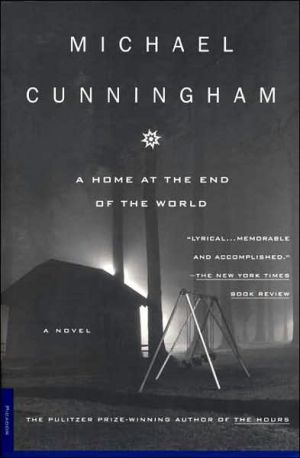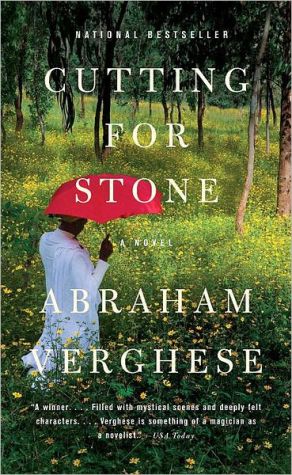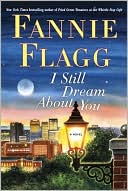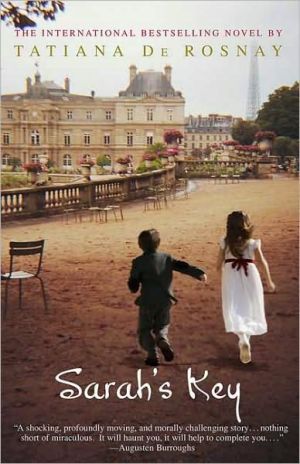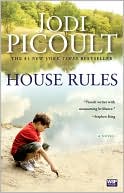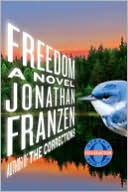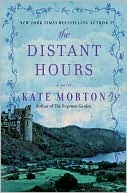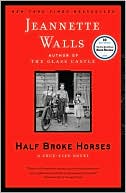Home at the End of the World
From Michael Cunningham, the Pulitzer Prize-winning author of The Hours, comes this widely praised novel of two boyhood friends: Jonathan, lonely, introspective, and unsure of himself; and Bobby, hip, dark, and inarticulate. In New York after college, Bobby moves in with Jonathan and his roommate, Clare, a veteran of the city's erotic wars. Bobby and Clare fall in love, scuttling the plans of Jonathan, who is gay, to father Clare's child. Then, when Clare and Bobby have a baby, the three move...
Search in google:
From Michael Cunningham, the Pulitzer Prize-winning author of The Hours, comes this widely praised novel of two boyhood friends: Jonathan, lonely, introspective, and unsure of himself; and Bobby, hip, dark, and inarticulate. In New York after college, Bobby moves in with Jonathan and his roommate, Clare, a veteran of the city's erotic wars. Bobby and Clare fall in love, scuttling the plans of Jonathan, who is gay, to father Clare's child. Then, when Clare and Bobby have a baby, the three move to a small house upstate to raise "their" child together and, with an odd friend, Alice, create a new kind of family. A Home at the End of the World masterfully depicts the charged, fragile relationships of urban life today.Publishers WeeklyThis poignant and absorbing novel, parts of which have already appeared in the New Yorker , is one of a kind: at once a bildungsroman that reveals a remarkable gay sensibility, a serious appraisal of how parents and children relate over the years, and a clear-eyed account of '80s ways of looking and living. It is the story of two young Clevelanders, Jonathan and Bobby, who become boyhood friends in spite of, and partly because of, their unhappily adjusted parents. They eventually emigrate to New York, where they end up living together -- and with a superbly realized eccentric, Clare, a very hip but desperate woman who tries to relate to them both, ends up having Bobby's child, attempts to share life in the country with them and eventually drifts away. Other characters rendered in detail include Jonathan's mother, Alice, a firm-minded survivor; her ever-optimistic husband, Ned; and Jonathan's sometime lover Erich, who comes to agonizing life for the reader only as he is dying of AIDS. No praise can be too high for Cunningham's writing. He worked six years on the novel, and it shows in the careful way he evokes fleeting thoughts and states of consciousness, in the lyrical sense of the ordinariness of place, whether Cleveland, New York, Arizona or upstate New York, in the musical background that accompanies much of the action, almost as in a movie, and in the unexpected ways that characters who have not met before interrelate when they do. His story is told from several alternating points of view -- Jonathan's, Bobby's, Clare's and Alice's -- and though this works well in narrative terms, the voices are not as different as one would expect from such fully realized characters. And some scenes, like the birth of Clare's baby, are unaccountably missing. Still, this is a gripping, haunting piece of work from a writer of real promise and power.
BOBBY \ Once our father bought a convertible. Don't ask me. I was five. He bought it and drove it home as casually as he'd bring a gallon of rocky road. Picture our mother's surprise. She kept rubber bands on the doorknobs. She washed old plastic bags and hung them on the line to dry, a string of thrifty tame jellyfish floating in the sun. Imagine her scrubbing the cheese smell out of a plastic bag on its third or fourth go-round when our father pulls up in a Chevy convertible, used but nevertheless -- a moving metal landscape, chrome bumpers and what looks like acres of molded silver car-flesh. He saw it parked downtown with a For Sale sign and decided to be the kind of man who buys a car on a whim. We can see as he pulls up that the manic joy has started to fade for him. The car is already an embarrassment. He cruises into the driveway with a frozen smile that matches the Chevy's grille.\ Of course the car has to go. Our mother never sets foot. My older brother Carlton and I get taken for one drive. Carlton is ecstatic. I am skeptical. If our father would buy a car on a street corner, what else might he do? Who does this make him?\ He takes us to the country. Roadside stands overflow with apples. Pumpkins shed their light on farmhouse lawns. Carlton, wild with excitement, stands up on the front seat and has to be pulled back down. I help. Our father grabs Carlton's beaded cowboy belt on one side and I on the other. I enjoy this. I feel useful, helping to pull Carlton down.\ We pass a big farm. Its outbuildings are anchored on a sea of swaying wheat, its white clapboard is molten in the late, hazy light. All three of us, even Carlton, keep quiet as we pass. There is something familiar about this place. Cows graze, autumn trees cast their long shade. I tell myself we are farmers, and also somehow rich enough to drive a convertible. The world is gaudy with possibilities. When I ride in a car at night, I believe the moon is following me.\ "We're home," I shout as we pass the farm. I don't know what I am saying. It's the combined effects of wind and speed on my brain. But neither Carlton nor our father questions me. We pass through a living silence. I am certain at that moment that we share the same dream. I look up to see that the moon, white and socketed in a gas-blue sky, is in fact following us. It isn't long before Carlton is standing up again, screaming into the rush of air, and our father and I are pulling him down, back into the sanctuary of that big car.\ \ JONATHAN\ We gathered at dusk on the darkening green. I was five. The air smelled of newly cut grass, and the sand traps were luminous. My father carried me on his shoulders. I was both pilot and captive of his enormity. My bare legs thrilled to the sandpaper of his cheeks, and I held on to his ears, great soft shells that buzzed minutely with hair.\ My mother's red lipstick and fingernails looked black in the dusk. She was pregnant, just beginning to show, and the crowd parted for her. We made our small camp on the second fairway, with two folding aluminum chairs. Multitudes had turned out for the celebration. Smoke from their portable barbecues sharpened the air. I settled myself on my father's lap, and was given a sip of beer. My mother sat fanning herself with the Sunday funnies. Mosquitoes circled above us in the violet ether.\ That Fourth of July the city of Cleveland had hired two famous Mexican brothers to set off fireworks over the municipal golf course. These brothers put on shows all over the world, at state and religious affairs. They came from deep in Mexico, where bread was baked in the shape of skulls and virgins, and fireworks were considered to be man's highest form of artistic expression.\ The show started before the first star announced itself. It began unspectacularly. The brothers were playing their audience, throwing out some easy ones: standard double and triple blossomings, spiral rockets, colored sprays that left drab orchids of colored smoke Ordinary stuff. Then, following a pause, they began in earnest. A rocket shot straight up, pulling a thread of sliver light in its wake, and at the top of its arc it bloomed purple, a blazing five-pronged lily, each petal of which burst out with a blossom of its own. The crowd cooed its appreciation. My father cupped my belly with one enormous brown hand, and asked if I was enjoying the show. I nodded. Below his throat, an outcropping of dark blond hairs struggled to escape the collar of his madras shirt.\ More of the lilies exploded, red yellow and mauve, their sliver stem lingering beneath them. Then came the snakes, hissing orange fire, a dozen at a time, great lolloping curves that met, intertwined, and diverged, sizzling all the while. They were followed by huge soundless snowflakes, crystalline bodies of purest white, and those by a constellation in the shape of Miss Liberty, with blue eyes and ruby lips. Thousands gasped and applauded. I remember my father's throat, speckled with dried blood, the stubbly skin loosely covering a huge knobbed mechanism that swallowed beer. When I whimpered at the occasional loud bang, or at a scattering of colored embers that seemed to be dropping directly onto our heads, he assured me we had nothing to fear. I could feel the rumble of his voice in my stomach and my legs. His lean arms, each lazily bisected by a single vein, held me firmly in place.
\ Publishers WeeklyTwo very different boys are drawn together by their oppressive home lives and by a connection that is both brotherly and sexual in this superb audio adaptation of Cunningham's vivid coming-of-age tale. Clevelanders Bobby Morrow and Jonathan Glover become childhood friends in the 1960s, and their friendship persists well into the '80s, when first Jonathan and then Bobby moves to New York City. There they meet aging hippie Clare, who imposes her own needs upon the two men. Clare, read with unflappable clarity by Van Dyck, attempts to build a normal life for herself using Bobby to become pregnant and Jonathan as emotional support. But as Jonathan's perceptive mother, Alice, warns her son, the unusual family they're creating won't last. Actors Farrell and Roberts who play Bobby and Jonathan respectively in the Warner Brothers motion picture fill the same roles here, and both deliver moving, understated performances. Although some listeners will wish they could soak up this absorbing story all in one sitting, the narrators' well-paced readings force the listener to sit back and appreciate the intricacy and skill of Cunningham's exquisite prose. Based on the FSG hardcover. (July) Copyright 2004 Reed Business Information.\ \ \ \ \ Publishers Weekly - Publisher's Weekly\ This poignant and absorbing novel, parts of which have already appeared in the New Yorker , is one of a kind: at once a bildungsroman that reveals a remarkable gay sensibility, a serious appraisal of how parents and children relate over the years, and a clear-eyed account of '80s ways of looking and living. \ It is the story of two young Clevelanders, Jonathan and Bobby, who become boyhood friends in spite of, and partly because of, their unhappily adjusted parents. They eventually emigrate to New York, where they end up living together -- and with a superbly realized eccentric, Clare, a very hip but desperate woman who tries to relate to them both, ends up having Bobby's child, attempts to share life in the country with them and eventually drifts away. Other characters rendered in detail include Jonathan's mother, Alice, a firm-minded survivor; her ever-optimistic husband, Ned; and Jonathan's sometime lover Erich, who comes to agonizing life for the reader only as he is dying of AIDS.\ No praise can be too high for Cunningham's writing. He worked six years on the novel, and it shows in the careful way he evokes fleeting thoughts and states of consciousness, in the lyrical sense of the ordinariness of place, whether Cleveland, New York, Arizona or upstate New York, in the musical background that accompanies much of the action, almost as in a movie, and in the unexpected ways that characters who have not met before interrelate when they do. His story is told from several alternating points of view -- Jonathan's, Bobby's, Clare's and Alice's -- and though this works well in narrative terms, the voices are not as different as one would expect from such fully realized characters. And some scenes, like the birth of Clare's baby, are unaccountably missing.\ Still, this is a gripping, haunting piece of work from a writer of real promise and power.\ \ \ \ Library JournalCunningham's novel focuses on the close friendship of Bobby and Jonathan. As boyhood friends growing up in Cleveland in the late Sixties and Seventies, Bobby and Jonathan form a relationship that is both average and far beyond what most kids would consider "normal.'' After high school Jonathan moves to New York City, where Bobby soon follows. They become involved with Clare, a slightly older woman who finds each one appealing in his own way. The rest of the novel centers on their unusual life together. This well-written book has lots of good dialog and will appeal to readers who want something other than the tried and true best seller. \ -- Mary K. Prokop, CEL Regional Library, Savannah, Georgia\ \ \ \ \ RosenthalOnce in a great while, there appears a novel so spellbinding in its beauty and sensitivity that the reader devours it nearly whole, in great greedy gulps, and feels stretched sore afterwards, having been expanded and filled. Such a book is Michael Cunningham's A Home at the End of the World. \ -- San Diego Tribune\ \ \ \ \ GilbertNovels don't come more deeply felt than Michael Cunningham's extraordinary four-character study... The writing...is a constant pleasure, flowing and yet dense with incisive images and psychological nuance. \ -- The Boston Globe\ \ \ \ \ EderCunningham writes with power and delicacy.... We come to feel that we know Jonathan, Bobby, and Clare as if we lived with them; yet each one retains the mystery that in people is called soul, and in fiction is called art. \ -- The Los Angeles Times\ \
